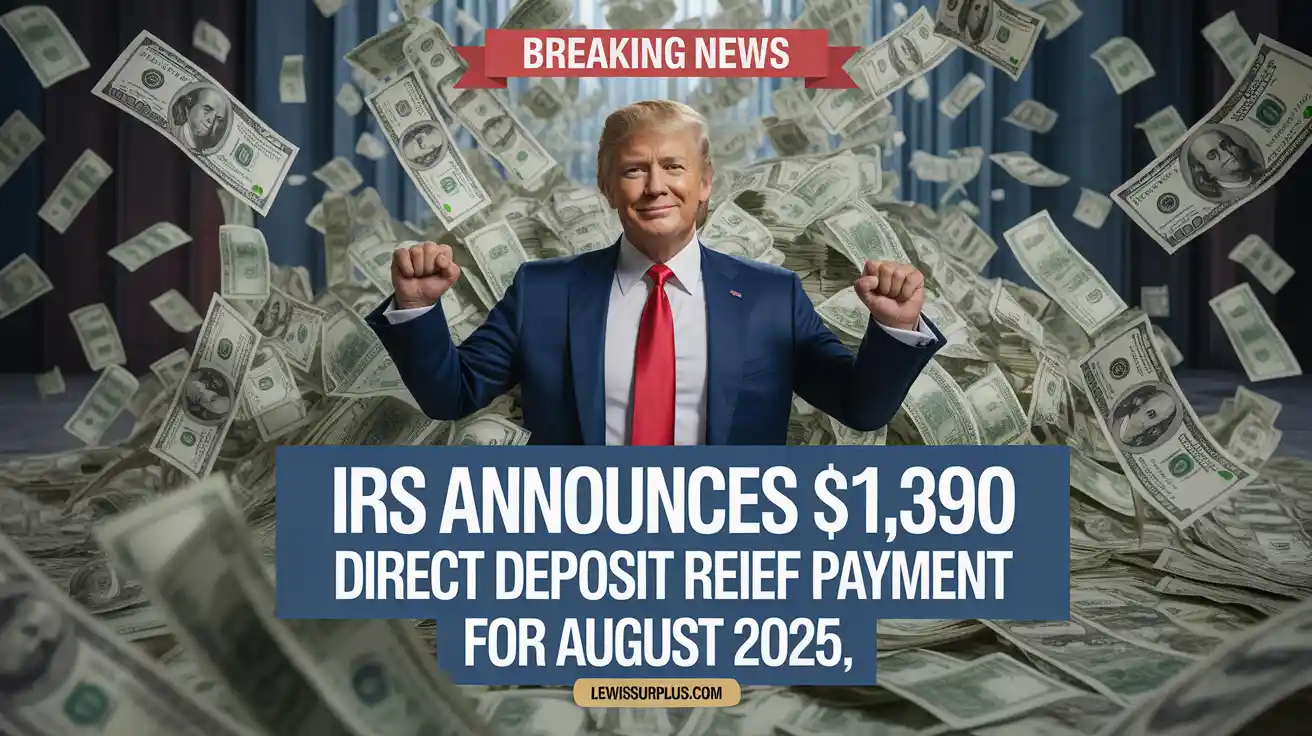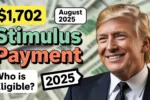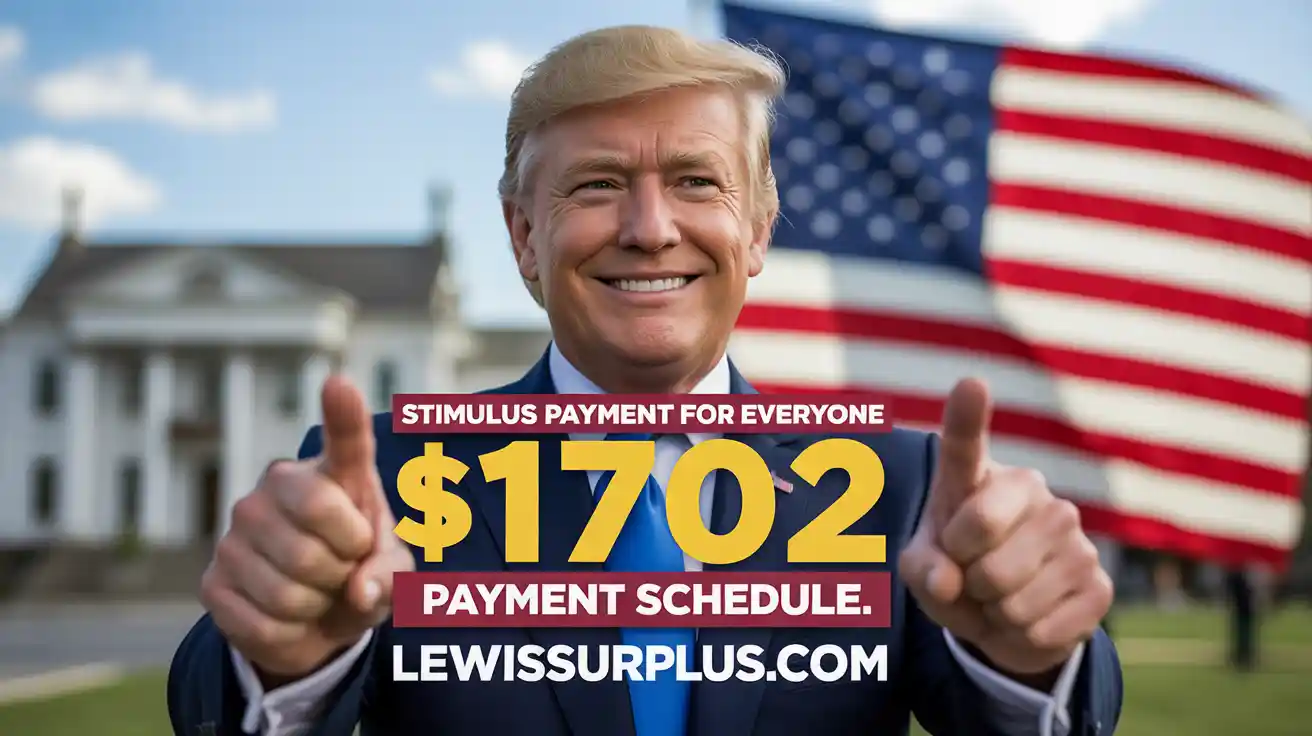IRS Announces $1,390 Direct Deposit Relief Payment For August 2025 : Recently, social media platforms have been filled with claims that the IRS is sending out $1,390 direct deposit relief payments in August 2025. This news has sparked excitement among many Americans who are still recovering financially. However, official reports and fact-checking organizations confirm that these claims are false. Let’s break down what this rumor means, why it started, and what the truth actually is.
The Rumor of $1,390 Relief Payment
The viral posts suggested that every eligible American taxpayer would receive $1,390 directly into their bank account this month. The rumor spread quickly because it resembled past stimulus checks distributed during the COVID-19 pandemic. Many assumed it was a continuation of federal support programs.
Summary of Key Points
| Topic | Explanation |
|---|---|
| Rumor | Claims of a $1,390 IRS relief payment for August 2025 |
| Official Status | False – IRS confirmed no such payment |
| Source of Confusion | Unclaimed Recovery Rebate Credits from past relief programs |
| Future Possibility | Proposed bills exist but none have become law |
| Scam Risk | High – fraudsters are using the rumor to trick people into sharing data |
| Safe Action | Verify updates only on IRS.gov and avoid sharing personal info on unofficial sites |
Official IRS Response
The IRS has officially clarified that there is no such $1,390 payment scheduled for August 2025. The agency confirmed that no new stimulus initiative has been authorized by Congress, which means it is legally impossible for the IRS to issue these checks. Any official payments are always announced on IRS.gov and distributed only after congressional approval.
Why the Confusion?
The confusion partly stems from unclaimed Recovery Rebate Credits from previous years. Early in 2025, the IRS allowed taxpayers to claim payments they had missed during the COVID-19 relief programs. Some people received up to $1,400 in refunds during this process. However, that program has now ended, and it is unrelated to any new August 2025 relief.
Proposed Legislation and Future Possibility
Lawmakers, including Senator Josh Hawley, have introduced proposals such as the American Worker Rebate Act, which could provide taxpayer rebates funded by tariffs. However, these bills are still under discussion in Congress and have not been passed into law. Therefore, there is no approved funding or payment at this time.
Public Awareness and Scam Warning
Officials are urging people to be cautious. Scammers often use false relief payment claims to steal personal and financial information. If you receive emails, text messages, or calls about “claiming your $1,390 IRS payment,” it is a scam. Always verify updates through official government websites.
Final Thought
The idea of a $1,390 relief payment in August 2025 may sound appealing, but it is not real. The IRS has made it clear that no such checks exist. While discussions about new relief programs continue in Congress, Americans should remain cautious, verify information through official sources, and protect themselves from scams. The safest path is to rely only on IRS.gov for accurate updates about federal payments.
Frequently Asked Questions (IRS Announces $1,390 Direct Deposit Relief Payment For August 2025)
Q1. Is the IRS really sending $1,390 checks in August 2025?
No. The IRS has confirmed that no such payments are planned or authorized.
Q2. Did anyone actually receive $1,390 recently?
Some taxpayers received unclaimed Recovery Rebate Credits earlier in 2025, but that was for past relief programs, not a new initiative.
Q3. Could new stimulus checks be approved in the future?
Possibly, but only if Congress passes a new law. As of now, no such law exists.
Q4. How can I check if I’m owed money by the IRS?
The safest way is to log into your account on IRS.gov or speak directly with the IRS through official contact numbers.
Q5. How do I avoid scams related to IRS payments?
Do not click on suspicious links or share personal details with unsolicited callers. The IRS will never contact you through text, email, or social media for payments.




